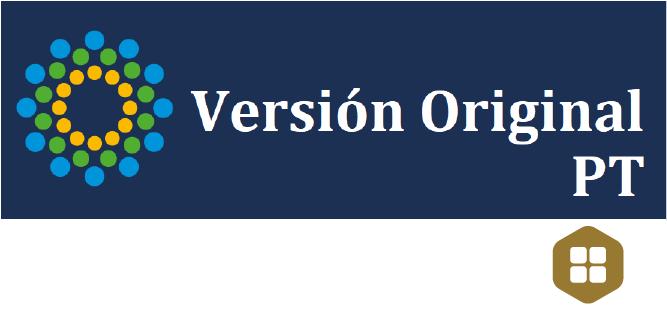Propuesta de tipología de trabajadores por cuenta propia considerando el impacto del emprendimiento y el compromiso emprendedor
DOI:
10.14211/regepe.esbj.e2549Palabras clave:
Autoempleo, Compromiso empresarial, Impacto empresarial, TipologíaResumen
Objetivo: proponer una tipología de trabajadores autónomos, basada en las dimensiones de impacto empresarial y compromiso empresarial. Dilema: es necesario comprender los distintos tipos de trabajadores autónomos, ya que examinarlos como una única categoría puede acarrear limitaciones en los resultados de un estudio. Relevancia: como criterio para definir las tipologías, se establecieron categorías dicotómicas para facilitar las comparaciones. Las categorías fueron: formalización (formal o informal), potencial de innovación (con alto potencial de innovación o bajo potencial de innovación), creación de empleo (con empleado o sin empleado), constancia en la actividad como TCP (intermitente o continua), conciliación de la actividad con otras ocupaciones profesionales/económicas (parcial o total) y motivación (por oportunidad o por necesidad). Las dimensiones adoptadas: impacto del emprendimiento y compromiso emprendedor fueron consideradas para identificar la actividad emprendedora y porque pueden ser identificadas a través de acciones. Se propusieron cuatro tipos de trabajadores autónomos. El tipo 1 (innovador) tiene un alto impacto y un alto compromiso. Tipo 2 (explorador) tiene un impacto alto y un compromiso bajo. Tipo 3 (convencional) tiene un impacto bajo y un compromiso alto. Tipo 4 (temporal) tiene un impacto y un compromiso bajos. Contribuciones: la tipología propuesta no trata de determinar si los TCP son o no emprendedores ni de asignar juicios de valor a los tipos, sino de comprender sus particularidades y su actividad emprendedora, lo que permitirá elegir y justificar teorías en el ámbito emprendedor y, en última instancia, dirigir acciones y políticas adecuadas a cada uno de los tipos.
Descargas
Traducciones de este artículo.
Citas
Baumol, W. J. (1996). Entrepreneurship: Productive, unproductive, and destructive. Journal of Business Venturing, 11(1), 3-22. https://doi.org/10.1016/0883-9026(94)00014-X
Block, J., Landgraf, A., & Semrau, T. (2019). The differential impact of societal cultural practices on part-time and full-time self-employment: A multi-level, multi-country study. International Small Business Journal, 37(1), 43-68. https://doi.org/10.1177/0266242618801441
Block, J. H., Fisch, C., & Hirschmann, M. (2022). The determinants of bootstrap financing in crises: evidence from entrepreneurial ventures in the COVID-19 pandemic. Small Business Economics, 58(2), 867-885. https://doi.org/10.1007/s11187-020-00445-6
Bögenhold, D. (2019). From hybrid entrepreneurs to entrepreneurial billionaires: Observations on the socioeconomic heterogeneity of self-employment. American Behavioral Scientist, 63(2), 129-146. https://doi.org/10.1177/0002764218794231
Burke, A., & Cowling, M. (2020). On the critical role of freelancers in agile economies. Small Business Economics, 55(2), 393-398. https://doi.org/10.1007/s11187-019-00240-y
Caliendo, M., Goethner, M., & Weißenberger, M. (2020). Entrepreneurial persistence beyond survival: Measurement and determinants. Journal of Small Business Management, v. 58(3), 617-647. https://doi.org/10.1080/00472778.2019.1666532
Carree, M. A., & Thurik, A. R. (2008). The lag structure of the impact of business ownership on economic performance in OECD countries. Small Business Economics, 30, 101-110. https://doi.org/10.1007/s11187-006-9007-0
Clarivate, (2022). KeyWords Plus generation, creation, and changes. https://support.clarivate.com/ScientificandAcademicResearch/s/article/KeyWords-Plus-generation-creation-and-changes?language=en_US
Colbari, A. L. (2015). Do autoemprego ao microempreendedorismo individual: desafios conceituais e empíricos. Revista Interdisciplinar de Gestão Social, 4(1). https://doi.org/10.9771/23172428rigs.v4i1.10909
Cornelissen, J. (2017). Editor’s comments: Developing propositions, a process model, or a typology? Addressing the challenges of writing theory without a boilerplate. Academy of Management Review, 42(1), 1-9. https://doi.org/10.5465/amr.2016.0196
Cumming, D., Johan, S., & Zhang, M. (2013). The economic impact of entrepreneurship: Comparing international datasets. Corporate Governance: An International Review, 22(2), 162-178. https://doi.org/10.1111/corg.12058
De Vries, N., Liebregts, W., & Van Stel, A. (2020). Explaining entrepreneurial performance of solo self-employed from a motivational perspective. Small Business Economics, 55(2), 447-460. https://doi.org/10.1007/s11187-019-00244-8
D’Amours, M., & Crespo, S. (2004). Les dimensions de l’hétérogénéité de la catégorie de travailleur indépendant sans employé: éléments pour une typologie. Relations Industrielles, 59(3), 459-489. https://doi.org/10.7202/010921ar
Fossen, F.M. (2021). Self-employment over the business cycle in the USA: a decomposition. Small Business Economics, 57(4), 1837-1855. https://doi.org/10.1007/s11187-020-00375-3
Ganser-Stickler, G.M., Schulz, M., & Schwens, C. (2022). Sitting on the fence-Untangling the role of uncertainty in entrepreneurship and paid employment for hybrid entry. Journal of Business Venturing, 37(2), 106176. https://doi.org/10.1016/j.jbusvent.2021.106176
Global Entrepreneurship Monitor. GEM. (2023). Global Entrepreneurship Monitor 2023/2024 Global Report: 25 Years and Growing. London: GEM. Recuperado em 02 de abril de 2024, de: https://www.gemconsortium.org/report/global-entrepreneurship-monitor-gem-20232024-global-report-25-years-and-growing
Gindling, T. H., Mossaad, N., & Newhouse, D. (2020). Self-employment earnings premiums/penalties and regulations: evidence from developing economies. Small Business Economics, 55(2), 507-527. https://doi.org/10.1007/s11187-019-00248-4
Gonçalves, J., & Martins, P. S. (2021). Effects of self-employment on hospitalizations: instrumental variables analysis of social security data. Small Business Economics, 57(3), 1527-1543. https://doi.org/10.1007/s11187-020-00360-w
Grilo, I., & Thurik, R. (2005). Entrepreneurial engagement levels in the European Union. International Journal of Entrepreneurship Education, 3(2), 143-168. http://hdl.handle.net/1765/15798
Henríquez-Daza, M. C., Capelleras, J. L., & Osorio-Tinoco, F. (2019). Entrepreneurial Engagement and Growth Aspirations: The Moderating Role of Opportunity Perception. International Review of Entrepreneurship, 17(2). http://hdl.handle.net/2262/104715
Hessels, J., Rietveld, C. A., & Van Der Zwan, P. (2017). Self-employment and work-related stress: The mediating role of job control and job demand. Journal of Business Venturing, 32(2), 178-196. https://doi.org/10.1016/j.jbusvent.2016.10.007
Hessels, J., Grilo, I., Thurik, R., & Van Der Zwan, P. (2011). Entrepreneurial exit and entrepreneurial engagement. Journal of Evolutionary Economics, 21, 447-471. https://doi.org/10.1007/s00191-010-0190-4
Instituto Brasileiro de Geografia e Estatística. IBGE. (2023). Pesquisa Nacional por Amostra de Domicílios Contínua: Notas Técnicas – Versão 1.12. Recuperado em 15 de abril de 2024, de: https://biblioteca.ibge.gov.br/visualizacao/livros/liv101999_notas_tecnicas.pdf
Jones, S., & Nadin, S. (2024). “I’d like to make a proper go of it but it’s really scary”: the perpetual liminality of informally self-employed women as stigmatized entrepreneurs. Entrepreneurship & Regional Development, 1-18. https://doi.org/10.1080/08985626.2024.2425945
Kahn, W. A. (1990). Psychological conditions of personal engagement and disengagement at work. Academy of Management Journal, 33(4), 692-724. https://journals.aom.org/doi/abs/10.5465/256287
Kalenkoski, C. M., & Pabilonia, S. W. (2022). Impacts of COVID-19 on the self-employed. Small Business Economics, 58(2), 741-768. https://doi.org/10.1007/s11187-021-00522-4
Koch, M., Park, S., & Zahra, S. A. (2021). Career patterns in self-employment and career success. Journal of Business Venturing, 36(1), 105998. https://doi.org/10.1016/j.jbusvent.2019.105998
Kwon, I., & Sohn, K. (2021). Trust or distrust: entrepreneurs vs. self-employed. Small Business Economics, 56(4), 1553-1570. https://doi.org/10.1007/s11187-019-00278-y
La Porta, R., & Shleifer, A. (2014). Informality and development. Journal of Economic Perspectives, 28(3), 109-126. http://dx.doi.org/10.1257/jep.28.3.109
Laguna, M., Razmus, W., & Zalinski, A. (2017). Dynamic relationships between personal resources and work engagement in entrepreneurs. Journal of Occupational and Organizational Psychology, 90(2), 248-269. https://doi.org/10.1111/joop.12170
Laing, E., Van Stel, A., & Storey, D. J. (2022). Formal and informal entrepreneurship: a cross-country policy perspective. Small Business Economics, 10, 8-8. https://doi.org/10.1007/s11187-021-00548-8
Lozares, C. (1990). La tipología en sociología, más allá de la simple taxonomía: conceptualización y cálculo. Revista de Sociologia, 139-163. https://doi.org/10.5565/rev/papers/v34n0.1564
Magnan, E. S., Vazquez, A. C. S., Pacico, J. C., & Hutz, C. S. (2016). Normatização da versão brasileira da Escala Utrecht de engajamento no trabalho. Avaliação Psicológica: Interamerican Journal of Psychological Assessment, 15(2), 133-140. https://doi.org/10.15689/ap.2016.1502.01
Martiarena, A. (2019). Re-examining the opportunity pull and necessity push debate: Contexts and abilities. Entrepreneurship & Regional Development, 32(7-8), 531-554. https://doi.org/10.1080/08985626.2019.1675776
Martinez, C., & Bryant, P. T. (2014). What keeps entrepreneurs entrepreneurial? A regulatory focus theory of entrepreneurial persistence. In: Academy of Management Proceedings. Briarcliff Manor, NY 10510: Academy of Management, 14802. https://doi.org/10.5465/ambpp.2014.14802abstract
Martinez, C., & Bryant, P. T. (2017). The Psychological Origins of Entrepreneurial Life Path Engagement and Persistence. In: Academy of Management Proceedings. Briarcliff Manor, NY 10510: Academy of Management, 11384. https://doi.org/10.5465/AMBPP.2017.11384abstract
McKinney, J. C. (1968). Tipología constructiva y teoría social. Editora: Amorrortu.
McMullen, J. S., Bagby, D. R., Palich, L. E. (2008). Economic freedom and the motivation to engage in entrepreneurial action. Entrepreneurship Theory and Practice, 32(5), 875-895. https://doi.org/10.1111/j.1540-6520.2008.00260x
Morris, M. H., Neumeyer, X., & Kuratko, D. F. (2015). A portfolio perspective on entrepreneurship and economic development. Small Business Economics, 45, 713-728. https://doi.org/10.1007/s11187-015-9678-5
Morris, M. H., Neumeyer, X., Jang, Y., Kuratko, D. F. (2018). Distinguishing types of entrepreneurial ventures: An identity‐based perspective. Journal of Small Business Management, 56(3), 453-474. https://doi.org/10.1111/jsbm.12272
Nikolova, M., Nikolaev, B., & Boudreaux, C. (2023). Being your own boss and bossing others: The moderating effect of managing others on work meaning and autonomy for the self-employed and employees. Small Business Economics, 60(2), 463-483. https://doi.org/10.1007/s11187-021-00597-z
Obschonka, M., Pavez, I., Kautonen, T., Kibler, E., Salmela-Aro, K., & Wincent, J. (2023). Job burnout and work engagement in entrepreneurs: How the psychological utility of entrepreneurship drives healthy engagement. Journal of Business Venturing, 38(2), 106272. https://doi.org/10.1016/j.jbusvent.2022.106272
Patel, P.C., & Ganzach, Y. (2019). Returns to balance in cognitive skills for the self-employed: evidence from 18 countries. Small Business Economics, 52(1), 89-109. https://doi.org/10.1007/s11187-018-0018-4
Patel, P.C., & Wolfe, M.T. (2021). Under pressure: the effect of antioxidants on health consequences related to oxidative stress. Entrepreneurship Theory and Practice, 45(1), 211-241. https://doi.org/10.1177/1042258720964184
Prandi, J.R. (1976). O Trabalhador por conta própria sob o Capital. São Paulo: Símbolo.
Ribas, R. P. (2020). Liquidity constraints, spillovers, and entrepreneurship: evidence from a cash transfer program. Small Business Economics, 55(4),1131-1158. https://doi.org/10.1007/s11187-019-00178-1
Roldán, P. L. (1996). La construcción de tipologías: metodología de análisis. Revista de Sociologia, 9-29. https://doi.org/10.5565/rev/papers.1811
Sarkar, S., Rufín, C., & Haughton, J. (2018). Inequality and entrepreneurial thresholds. Journal of Business Venturing, 33(3), 278-295. https://doi.org/10.1016/j.jbusvent.2017.12.009
Schaufeli, W. B., Salanova, M., González-Romá, V. & Bakker, A. (2002). The measurement of engagement and burnout: A two sample confirmatory factor analytic approach. Journal of Happiness Studies, 3, 71-92. https://doi.org/10.1023/A:1015630930326
Skrzek-Lubasińska, M., & Szaban, J. M. (2019). Nomenclature and harmonised criteria for the self-employment categorisation. An approach pursuant to a systematic review of the literature. European Management Journal, 37(3), 376-386. https://doi.org/10.1016/j.emj.2018.11.001
Sorgner, A., Fritsch, M.; & Kritikos, A. (2017). Do entrepreneurs really earn less? Small Business Economics, 49(2), 251-272. https://doi.org/10.1007/s11187-017-9874-6
Swedberg, R. (2018). How to use Max Weber’s ideal type in sociological analysis. Journal of Classical Sociology, 18(3), 181-196. https://doi.org/10.1177/1468795X17743643
Szaban, J., & Skrzek-Lubasińska, M. (2018). Self-employment and entrepreneurship: A theoretical approach. Journal of Management and Business Administration. Central Europe, 26(2), 89-120. https://doi.org/10.7206/jmba.ce.2450-7814.230
Uriarte, S., Mandakovic, V., & Amorós, J. E. (2024). Hybrid entrepreneurs: The value of experience. Journal of Small Business Management, 62(6), 2935-2964. https://doi.org/10.1080/00472778.2023.2284911
van Praag, C. M., & Versloot, P. H. (2007). What is the value of entrepreneurship? A review of recent research. Small Business Economics, 29(4), 351-382. https://doi.org/10.1007/s11187-007-9074-x
van Riel, R. (2021). Weberian ideal type construction as concept replacement. European Journal of Philosophy, 30(4), 1358-1377. https://doi.org/10.1111/ejop.12752
Vladasel, T., Lindquist, M. J., Sol, J., Van Praag, M. (2021). On the origins of entrepreneurship: Evidence from sibling correlations. Journal of Business Venturing, 36(5), 106017. https://doi.org/10.1016/j.jbusvent.2020.106017
Weber, M. (2008). Ensaios sobre a teoria das ciências sociais. Tradução de Rubens Eduardo Frias. 3ª edição – São Paulo.

Descargas
Publicado
Métricas
Visualizações do artigo: 2022 PDF (Português (Brasil)) downloads: 238 Áudio (Português (Brasil)) downloads: 31 Vídeo (Português (Brasil)) downloads: 55 XML (Português (Brasil)) downloads: 0 Pareceres (Português (Brasil)) downloads: 68
Cómo citar
Número
Sección
Licencia
Derechos de autor 2025 Jéssica Borges de Carvalho, Cândido Borges

Esta obra está bajo una licencia internacional Creative Commons Atribución 4.0.
Los autores que publican en esta revista están de acuerdo con los siguientes términos:
-
El/La autor(a)/es(as) autorizan la publicación del texto en la revista;
-
La revista no se responsabiliza de las opiniones, ideas y conceptos emitidos en los textos, ya que son de entera responsabilidad de sus autores/autoras;
-
Los autores/autoras mantienen los derechos de autor y conceden a la revista el derecho de la primera publicación, con el trabajo publicado bajo la Licencia CC BY 4.0
, que permite el compartir el trabajo con reconocimiento de la autoría y la publicación inicial en esta revista;
-
Los autores/autoras están permitidos y animados a publicar su trabajo (Versión enviada, Versión aceptada [Manuscrito aceptado por el autor/autora] o Versión publicada [Versión del registro]) en línea, por ejemplo, en repositorios institucionales o preprints, ya que puede llevar a intercambios productivos, así como a citas anteriores y mayores de trabajos publicados. REGEPE pide como condición política para los autores/autoras que indiquen/vinculen el artículo publicado con DOI. Vea el Efecto del Acceso Abierto.
Declaración de datos
-
Los datos de investigación están incluidos en el propio manuscrito















